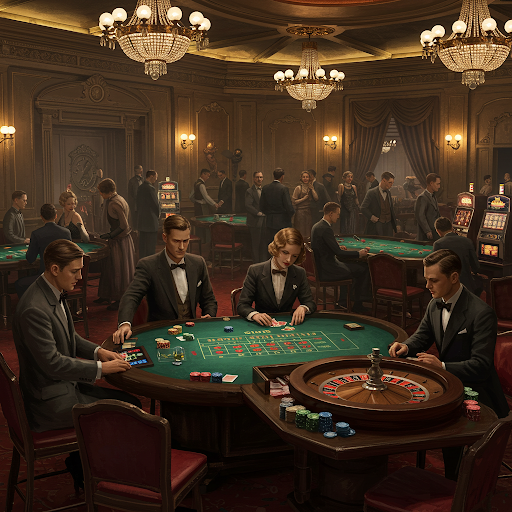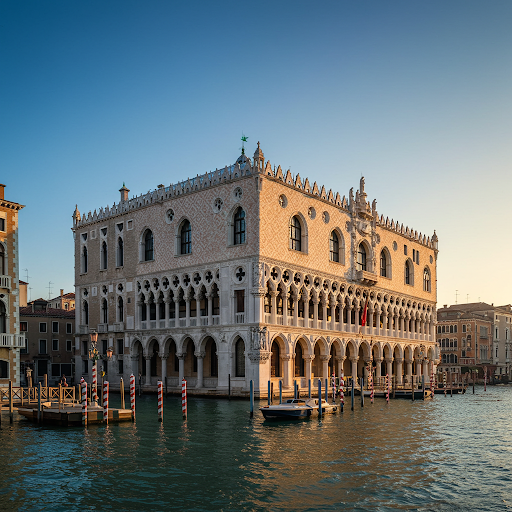When you think of the word “casino,” a picture of opulent rooms filled with gamblers, flashing lights, and the clinking of coins may come to mind. However, the history of casinos dates back hundreds of years, long before the invention of modern slot machines and roulette wheels. The world’s first casino was born in the heart of Europe and laid the foundation for the gambling industry as we know it today.

In this article, we’ll take a journey back in time to explore the origins of the world’s first casino, the story of its creation, and how it has influenced modern gambling establishments worldwide.
The Birth of the First Casino: The Casino di Venezia (1638)
While gambling as a pastime has existed for millennia, the Casino di Venezia in Italy holds the distinction of being the world’s first official casino. Established in 1638 in Venice, the Casino di Venezia was not just a place for games of chance, but a sophisticated social club designed for the wealthy elite of the era.
A Royal Affair: Origins in Venetian Culture
Venice, in the 17th century, was a hub of political and cultural activity. As a center of trade, it attracted some of the wealthiest and most influential individuals from around the world. In the early 1600s, Venice had many establishments where patrons could engage in various forms of gambling. However, these venues were often informal and not necessarily regulated or supervised by the government.
In response to growing public interest in gambling and the desire to regulate the activity, the Venetian government decided to establish a formal gambling house in 1638. This venue was intended to keep gambling away from the streets and into a controlled environment where the games were managed properly.
Thus, the Casino di Venezia was born, offering a legal and organized space for gambling, as well as socializing, entertainment, and performances. It was located in the Ca’ Vendramin Calergi palace, a grand building that remains one of the most important landmarks in Venice today.
What Made the Casino di Venezia Special?
Unlike other informal gambling establishments, the Casino di Venezia had a level of prestige and exclusivity. The games offered here were designed to appeal to the aristocratic tastes of the time, with high-stakes card games, dice games, and other games of chance. The house became famous for its luxurious environment, which attracted high society from across Europe.

While the games played at the casino were quite similar to those found in modern-day casinos, such as baccarat, the institution was also unique in that it became a gathering place for the arts and culture. Operas, theatrical performances, and musical events often took place alongside gambling, making the casino a true cultural hotspot. Over time, this fusion of entertainment and gambling would become a hallmark of the modern casino.
The Evolution of Casinos: From Venice to the World
After the success of the Casino di Venezia, the concept of casinos began to spread across Europe. As the idea of regulated gambling gained popularity, other countries sought to emulate Venice’s success. In the 18th and 19th centuries, casinos began to emerge in cities like Monte Carlo, Paris, and London, each adding its own flavor to the gambling scene.
However, the idea of a casino as we know it today, complete with a variety of table games, slot machines, and high-stakes poker rooms, didn’t take shape until the 20th century. The Casino de Monte Carlo, established in 1856, is another notable example of an influential early casino, and it helped pave the way for the modern casino industry.
Today, the casino industry is worth billions of dollars, with casinos located in nearly every corner of the globe, from luxury resorts in Las Vegas to online casinos that offer players the ability to gamble from the comfort of their homes. Despite the enormous scale of the global gambling industry today, it all began in the quaint, sophisticated surroundings of the Casino di Venezia in Venice.
Legacy of the First Casino: How It Changed the World of Gambling
The Casino di Venezia didn’t just change the world of gambling—it helped establish the foundation for the entire casino culture that we know today. The concept of an official, licensed gambling house was revolutionary and provided a model for modern casinos. Here are some key takeaways from the world’s first casino:
- Regulation and Legitimacy: The creation of a legal gambling house offered a framework for regulating the industry. This approach would go on to influence the modern licensing and regulation of casinos worldwide.
- Social and Cultural Integration: The idea of combining gambling with entertainment, luxury, and socializing became a blueprint for modern casinos, which are often designed as entertainment hubs that offer a variety of experiences beyond gaming.
- Global Expansion: The success of the Casino di Venezia inspired other countries to establish their own casinos, leading to the global spread of the casino industry. Today, you can find casinos in nearly every major city around the world.
Conclusion: A Legacy That Lives On
The story of the world’s first casino, the Casino di Venezia, is not just about the birth of a gambling institution—it’s about the creation of an entire industry that has shaped entertainment and culture across the globe. From its beginnings in the grandeur of Venice to the luxury casinos we see today, the legacy of the Casino di Venezia lives on.
For those who love the excitement of gambling, it’s fascinating to think that this vibrant, thrilling industry had its roots in a regal Venetian palace more than 380 years ago.
Whether you’re visiting the Casino di Venezia in person or enjoying the thrill of online gaming, you can trace your love of the game back to Venice, where it all began. And next time you visit a casino, take a moment to remember the rich history that gave birth to this global phenomenon.
